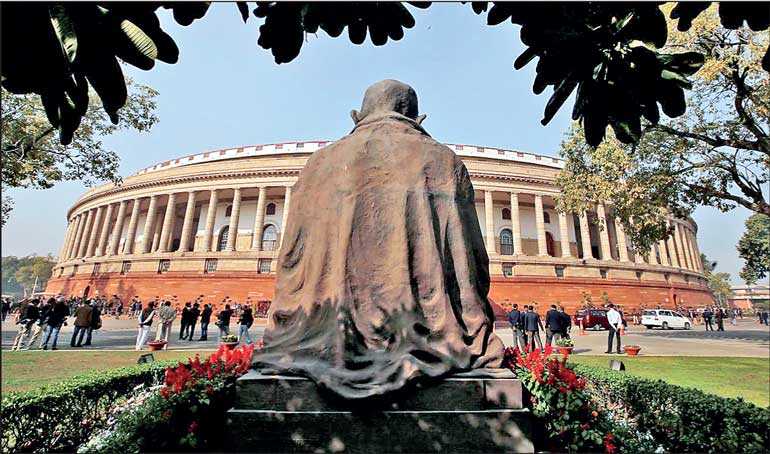Monday Feb 23, 2026
Monday Feb 23, 2026
Friday, 11 January 2019 00:00 - - {{hitsCtrl.values.hits}}

NEW DELHI (Reuters): India’s Parliament passed a landmark bill on Wednesday reserving 10% of government jobs for people outside high income brackets, a move criticised by some as a pre-election gimmick amid high unemployment.
Joblessness in the world’s second most populous country shot up to a 15-month high last month, data from an independent think-tank showed, underlining the challenge to Prime Minister Narendra Modi’s bid to retain power in a vote due by May.
The new public sector job quota is expected to mainly benefit the upper echelons of India’s centuries-old Hindu caste system, which has traditionally been a core voter base for Modi’s Hindu nationalist Bharatiya Janata Party (BJP).
Modi must call a national election by May and was dealt a setback in December when the BJP lost power to the opposition Congress party in three states, its biggest defeat since he took office in 2014.
Under the new amendment to the Constitution floated by Modi’s party days after those state defeats, people with an annual income below 800,000 INR ($ 11,354) and owning fewer than five acres of land would be eligible. The Lok Sabha had already passed the Bill and almost all political parties voiced their support for it in Rajya Sabha on Wednesday. “Glad to see such widespread support for the Bill,” Modi tweeted after the Bill’s passage. “It ensures a wider canvas for our yuva shakti (youth) to showcase their prowess and contribute towards India’s transformation.”
India already has job and education quotas for its lowest social classes, but this is the first time upper caste Hindus and people from other religions will benefit from affirmative action.
“There is no food but every hungry man is handed an empty plate, that’s what Modi’s Government is doing with the youth of India,” political analyst and former lawmaker Shahid Siddiqui said on Twitter. “There are no jobs, but 10% reservation in the line of unemployed.” Derek O’Brien, from the opposition All India Trinamool Congress party, said the Bill was “an acknowledgement of guilt that we haven’t created any jobs in last four and a half years”.
But Modi said the Bill “sets into motion the process to achieve an effective measure that ensures justice for all sections of society”.
Data from the Centre for Monitoring Indian Economy think-tank also showed India lost as many as 11 million jobs last year with around 83% in rural areas, as operational costs surged for small businesses since the launch of a national sales tax in 2017 and an earlier ban on high value currency notes.